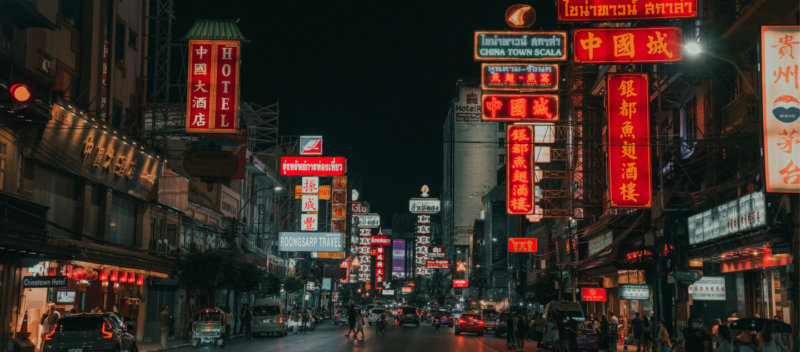

Chinese New Year is one of the most important dates for Thai-Chinese families. It’s a special time for everyone to come together and share great food and treasured traditions that date back thousands of years. Here’s a handy guide for what to expect:

Do you know that there is actually no set date for Chinese New Year? It starts on the first day of the first month in the traditional lunar calendar still widely used in China. That date usually falls between 21 January and 20 February and in 2019, it’s 5 February.

Also known as Spring Festival, it traditionally marks the end of winter and the beginning of harvesting season. Since the holiday is celebrated by the Chinese diaspora over the world, it is widely known as Chinese New Year today.

Most families of Chinese descent take time to remember ancestors who have passed away and pray for good luck, wealth and health by offering a feast. The dishes each have different meanings. For example, chicken is a symbol of elegance, perseverance and success, while fruits like oranges mean luck and steamed cupcakes mean prosperity. Look out for these as offerings on tables in front of houses and buildings. Meanwhile, you may hear a lot of firecrackers–it’s believed that the noise scares away monsters and bad luck, and you’ll also see a lot of red, as the Chinese believe it’s a lucky colour.

There are many superstitions surrounding Chinese New Year. For example, if you wash your hair on Chinese New Year, you’ll wash away the luck that you’ve accumulated that day by doing good deeds. Words or topics that are related to death and ghosts are discouraged. The use of any sharp objects such as scissors or knives is also avoided, as they will cut away at your luck and wealth.

Most of the fun and festivities are centred around Chinatown, where you’ll find many shops decorated in red and some restaurants offering Chinese New Year menus for you to sample. Some of the most famous Chinese temples in Bangkok are also located in Chinatown, such as Wat Mangkon Kamalawat and Chao Pho Suea Shrine. At Wat Mangkon Kamalawat, you can check your luck for the coming year according to the Chinese zodiac. If they say that you’ll faced with bad luck, you can make an offering to the Tai Sui deity, who most Chinese people believe to be the god of fortunes. Chao Pho Suea Shrine is the first Chinese temple in Bangkok where you can worship the Sein Tein Zang Tee deity, tiger god of the north star. You’ll see a lot of offerings of pork, rice and eggs at this temple, and couples are known to come and pray to be blessed with a child.
